Inside Robby Starbuck's anti-DEI war on Tractor Supply, John Deere and Harley-Davidson
Last week Robby Starbuck, a conservative activist, launched a boycott of Harley-Davidson, calling out the iconic motorcycle maker for a range of “woke” offenses, from hosting an LGBTQ+ boot camp at its offices to supporting gay and transgender equality legislation.
“Just get rid of the social issues and divisive causes,” Starbuck said in a nine-minute video on social media platform X, where he has more than a half million followers. “No more DEI departments, no more woke trainings, no more donations to woke causes, no more donations to Pride parades.”
In a nation riven by cultural issues around race, gender and family, Starbuck is part of a new wave of anti-“woke” agitators pressuring corporate America to back off commitments to diversity and inclusion, policies on climate change and support for the gay and transgender community.
Last year, Bud Light lost its spot as the top-selling beer in the U.S. after a social media promotion with a transgender influencer spurred a backlash from social conservatives and the LGBTQ+ community and its allies. Target sales suffered a similar fate over Pride Month merchandise. This year, Target scaled back the collection and didn’t carry it in all stores.
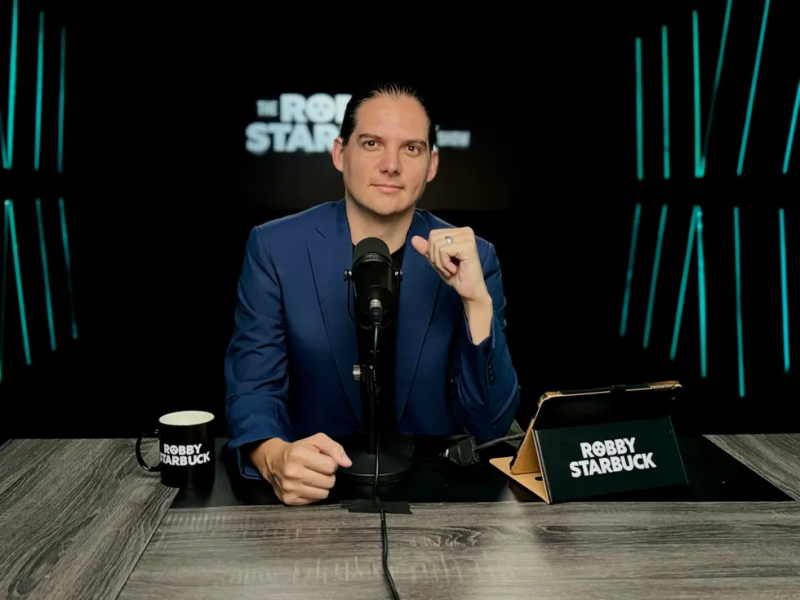
A 35-year-old conservative activist and Trump supporter raised by his mother and grandparents who fled communist Cuba, Starbuck turned his attention to the corporate sector when he got a tip about “woke” business practices at Tractor Supply, the rural retail chain where he buys hay, grain and alfalfa treats for his cattle.
Starbuck, who worked in the film industry in California before moving to a 12-acre farm near Nashville, said he canceled his membership in Tractor Supply’s loyalty program and rolled up his sleeves, peppering the company with social media posts taking issue with everything from its climate change initiatives to a warehouse displaying Pride flags.
Three weeks after Starbuck began his campaign, Tractor Supply scrapped its DEI initiatives and carbon emission goals.
“As this started to pick up a ton of steam and we had momentum, I realized, hey, this is repeatable,” Starbuck said.
His second target was another heartland company whose shoppers skew male and rural and tend to embrace conservative political causes.
Farm equipment manufacturer John Deere stopped short of meeting Starbuck’s demands to eliminate its DEI programs but said it would no longer participate or support “social or cultural awareness parades, festivals or events” such as Pride parades.
Tractor Supply declined to comment. John Deere did not respond to a request for comment.
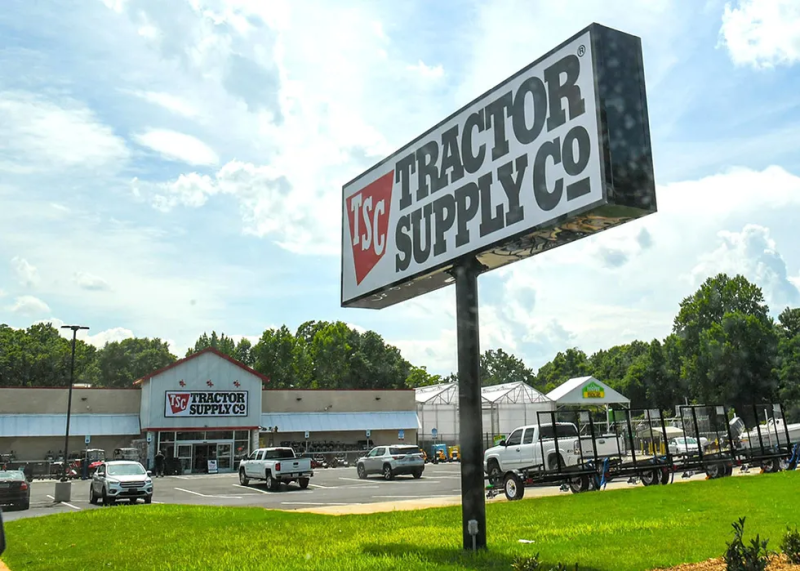
Targeting companies with conservative customers
Starbuck credits his quick success to targeting brands with broad appeal among conservatives that he says have fallen “out of alignment” with their customers.
With the help of two full-time employees who run down tips from whistleblowers, his strategy is to cluster attacks on one company at a time. He posts dozens of times over the course of weeks to get his followers' attention, urging them to protest with their voices and their wallets.
“If you give people the information, they are going to make wise choices with it, especially if you are doing it in a way that is focused at the right demographics and at the right customer base,” he told USA TODAY.
Starbuck’s message resonated with Ultimate Fighting Championship star Sean Strickland who has owned Harley-Davidson motorcycles most of his life.
After seeing Starbuck’s video on X, Strickland wheeled out his own soapbox and threatened to sell his custom cruiser. In a poll on his X account, he asked followers: “Should I sell my Harley or blow it up with a machine gun?!?!”
"Listen, man, I still go to Starbucks. It's a dirty (expletive) liberal company and I accepted that,” Strickland said. “Harley going woke is a betrayal to their customers. It's different."
Harley-Davidson did not respond to a request for comment.
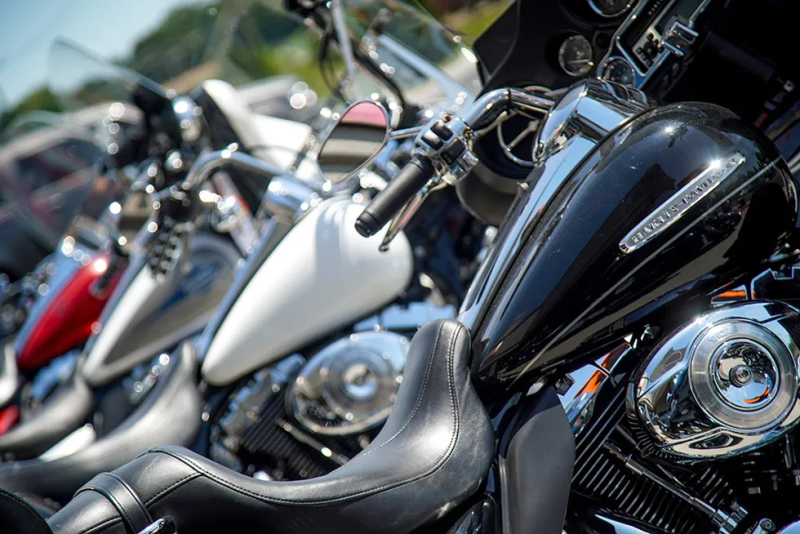
Corporate watchdog or social extremist?
Four years ago when George Floyd died under a white police officer’s knee, major brands made pledges to increase diversity and inclusion. Now some are treading more cautiously.
After weighing in on divisive topics like abortion, immigration and racial equity, business leaders are walking a fine line, trying to steer away from the nation’s cultural fault lines while continuing to embrace DEI initiatives that are popular with many consumers and employees.
“Starbuck and other activists are tapping into the sentiment that DEI and ESG initiatives, however well-meaning, have gone too far,” said David Primo, a professor of political science and business administration at the University of Rochester in New York.
In this volatile political environment, Starbuck sees himself as a corporate watchdog. He frames his anti-“woke” campaign as getting politics out of business.
“Our ultimate goal is to get companies to a neutral place,” Starbuck said.
Eric Bloem, vice president of programs and corporate advocacy at the Human Rights Campaign, sees Starbuck very differently, as a fringe crusader who traffics in dangerous anti-gay and anti-transgender rhetoric that is out of step with most Americans.
Starbuck, who built a large social media following by staking out conservative positions in the nation’s heated debate over social and cultural issues, was endorsed by Sen. Rand Paul, R-Ky., in an unsuccessful bid for a Tennessee congressional seat in 2022. He supports banning children at drag shows and opposes gender-affirming medical care for minors.
Bloem says the business case for diversity and inclusion is clear.
The LGBTQ+ community represents a large customer base, with an estimated $1.4 trillion in purchasing power in the U.S., according to LGBT Capital.
And that customer base is growing. The number of American adults who identify as LGBTQ+ has more than doubled in the last 12 years, according to Gallup polling. The proportion of younger people who identify as LGBTQ+ is even higher – more than 1 in 5 Gen Z adults, age 18 to 23.
Research also suggests that Americans are more likely to patronize brands that support the LGBTQ+ community.
“This is obviously something that is having a moment, so to speak,” Bloem said of Starbuck's campaigns against DEI. But, "this notion that we need a return to sanity or a return to neutrality is something that doesn’t resonate with people who are legitimately focused on business outcomes.”
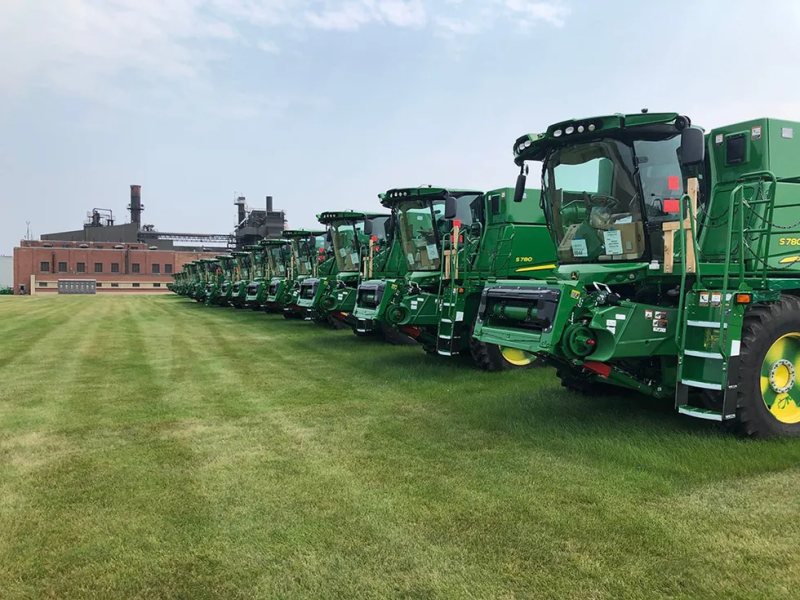
Harley-Davidson riders react to campaign
Harley-Davidson riders headed to the Sturgis Motorcycle Rally said word was already spreading about Starbuck’s campaign.
“I rolled into South Dakota on my 2003 100th anniversary pre woke edition Electra glide,” one wrote to Starbuck on X. “I heard HD Sturgis HQ is gonna be like Bud Light tent was last year!”
Country artist Travis Tritt called the allegations "disturbing."
"I seriously doubt that pushing a DEI agenda will be very popular with any of the HOG members I know," Twitt said on X.
Though his attacks may have won points with many Harley-Davidson riders, Starbuck also has his share of detractors.
A Harley-Davidson dealership in Vermont accused him of playing fast and loose with the facts and exploiting hot-button issues for personal gain. Starbuck stands by his campaign and denies this is a “get rich quick scheme.”
“His baseless accusations against Harley-Davidson are part of a broader pattern of sensationalism aimed at monetizing outrage,” Wilkins Harley-Davidson wrote in a blog post on its website. “HD has been judged, criticized, and attacked for various things over its 120-year history. It is going to take a little more than some washed up podcaster to make a dent in this company.”
Chris Sadowski, 65, who lives outside Milwaukee in a deep-red stretch of Wisconsin, says he has been around Harleys all his life and has been riding one for eight years. He’s been out since college and everyone in his local hog chapter knows that he’s gay.
He's a live-and-let-live kind of guy − he says "Harley-Davidson is about freedom and riding" − and it bothers him that Starbuck trades in stereotypes that stir division.
“It’s easier for you to feed your prejudices than it is to get to know people and see if there is any merit to it," Sadowski said. "And then you look for cheerleaders to support your views. It doesn’t make you right.”
Starbuck's anti-DEI agenda also doesn’t make much business sense, according to Sadowski. Conservative-leaning graybeards and their growling engines still make up a sizable share of Harley-Davidson’s customer base, but the company is quietly trying to remake its chrome-and-leather image to draw in women and younger generations with different sensibilities, he said.
“The old guard crows about it but, after a while, as people get older, they are not going to be buying bikes anymore. Harley has to think about the future,” Sadowski said.
John Deere, Tractor Supply face backlash
While Starbuck's anti-"woke" campaign resonated in right-wing corners of the internet, giving in to Starbuck's pressure tactics wasn't popular with all Tractor Supply and John Deere customers.
Kansas rancher Brandi Buzzard Frobose said she was disappointed in Tractor Supply – TSC – which is a staple in the lives of American farmers.
“Whether TSC wants to acknowledge it or not, LGBTQ+ people and people of color (POC) do live and work in rural America. They are a valuable thread in the tapestry of American agriculture,” Frobose wrote on her brand Facebook page. “This is an overreaction to loud voices who are upset that LGBTQ+ and POC exist in agriculture and deserve equity and equality in our communities and workplaces.”
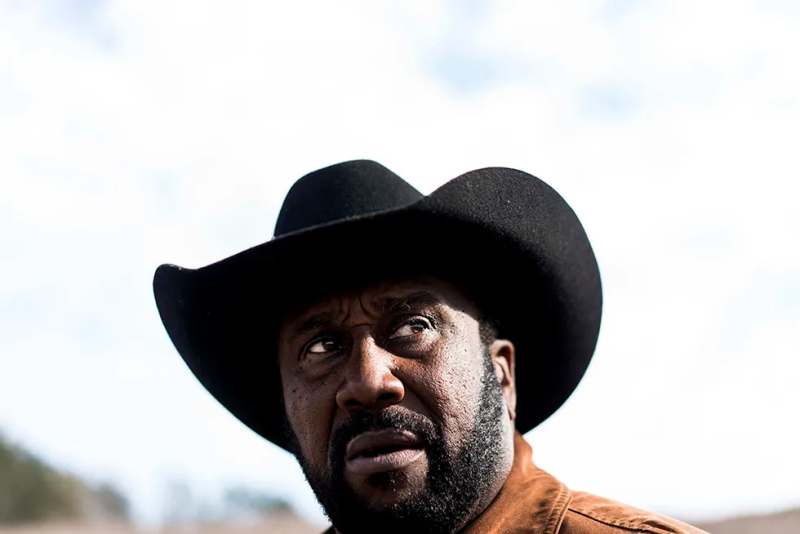
Ryan Goodman, founder of Pride in Agriculture, said the Tractor Supply team was “incredibly supportive” when he worked there in high school.
“They helped me get started and learn how to care for customers within the resources we had to work with,” Goodman wrote in a blog post. “That experience, and now taking a look around at our current political environment, makes it even more concerning to see TSC pulling back from supporting marginalized groups.”
National Black Farmers Association President John Boyd Jr. called for the resignation of Tractor Supply CEO Hal Lawton and John Deere CEO John May. He told USA TODAY that Black farmers buy feed from Tractor Supply and farm equipment from John Deere, yet both companies are moving away from commitments to diversity.
“They see themselves as white male companies. That’s not the American way,” National Black Farmers Association President John Boyd Jr. said. “We need to be treated with the same dignity and respect.”
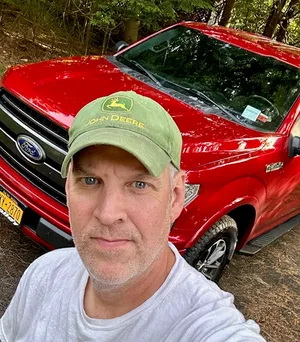
One Tractor Supply employee voted with his feet.
Joe Montello, who describes himself as a “rural, country, woodsy kind of guy,” says he’s happiest hiking mountain trails and paddling crystalline lakes.
“I’m not any type of activist,” he said. But that’s what he became when he quit his $80,000-a-year job at Tractor Supply in Ray Brook, New York.
A retail manager with three decades of experience, Montello, 57, leapt at the chance to live in the Adirondacks where he vacationed. He planned to keep working at Tractor Supply until he retired. Then the Tennessee-based company backslid on its commitments to DEI and the LGBTQ+ community.
So Montello texted his boss and turned in the store keys the same day. Now he’s working construction for $18 an hour while he figures out what to do next.
Tractor Supply employees and customers have stopped him in the grocery store aisles and on hiking trails and reached out to him on Facebook to voice their support, Montello says. He misses the job he loved, but he says he does not regret his choice.
“I felt like it was time to stand up for what I believe in, that all people are created equal and should be treated with respect,” he said.
Disclaimer: The copyright of this article belongs to the original author. Reposting this article is solely for the purpose of information dissemination and does not constitute any investment advice. If there is any infringement, please contact us immediately. We will make corrections or deletions as necessary. Thank you.







